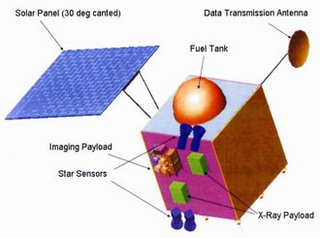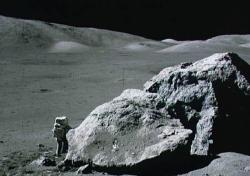(Moon Daily) "Sending man to moon is a very complicated mission. So, as a first step, we plan to develop an Indian spacecraft that will take astronauts across the earth and bring them back," ISRO Chairman G Madhavan Nair said delivering a lecture on 'India's Recent Space Achievements' here on Sunday. [...]Even though India has yet to put a man into space (note: they are planning to send their first citizen around 2015), their belated entrance could help motivate Asia as a whole, especially if they team up with the Japanese.
ISRO was also in the process of developing technologies for a manned moon mission and it would take more than six to seven years to develop those technologies, he said adding our effort is to achieve the milestone by the time the proposed next manned moon mission of USA and China materialise in 2020".
Currently China is the leading space power in the region, as they have already conducted a space walk, with future plans on landing a lunar rover to explore the Moon's surface.
Only time will tell whether or not India realizes its dream among the stars--but if the nation of a billion people is successful, we may see future astronauts speaking an additional 20 plus languages (instead of just English and Chinese).











![ColonyWorlds[at]Gmail[dot]com](http://img.photobucket.com/albums/v438/hiddennook/ColonyWorlds.png)






